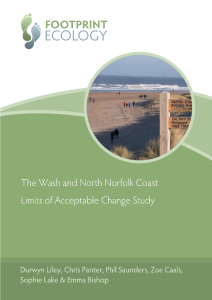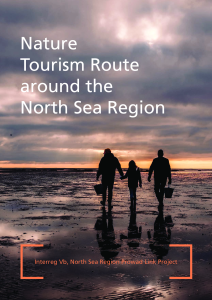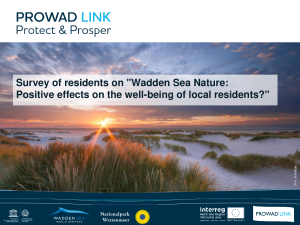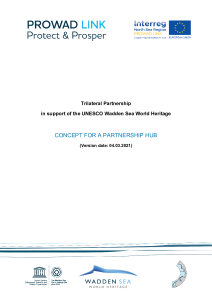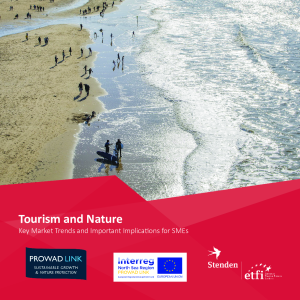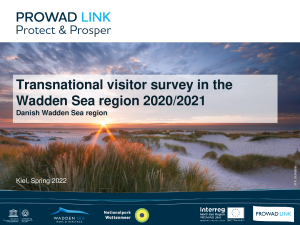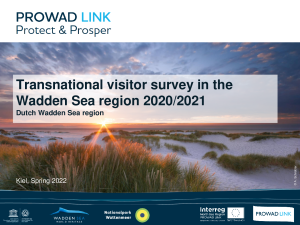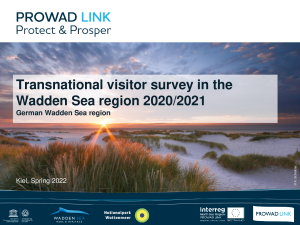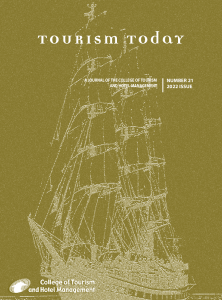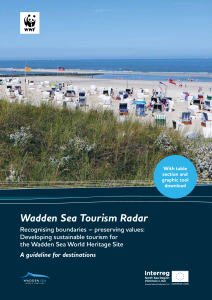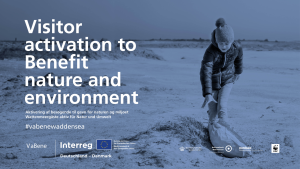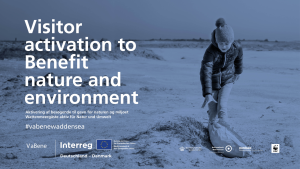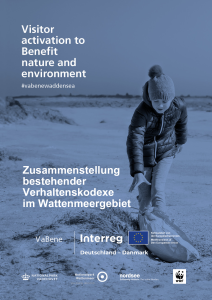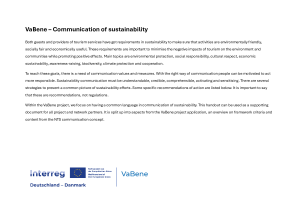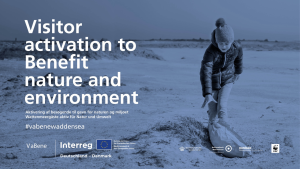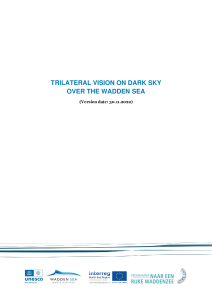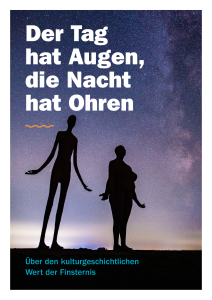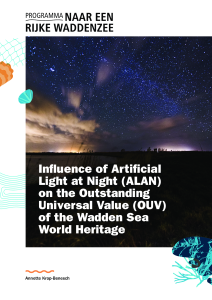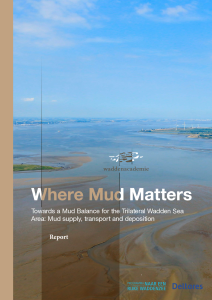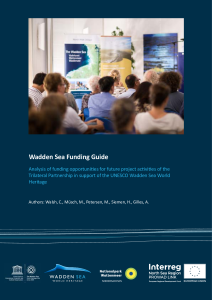Study focused on the nature conservation impacts arising from recreational use covering the area of the North Norfolk and Lincolnshire coast, from Gibraltar Point in Lincolnshire, around The Wash, and along the North Norfolk coast east to Weybourne.
Materials
This section pools all material connected to the platform. Under fundamental documents you will find helpful publications, websites, videos, and photos on partnering for Wadden Sea World Heritage. Underneath, materials shared in your groups, the networks of t he platform, and materials uploaded by yourself are listed.
Fundamental documents
Sustainable tourism
-
-
The feasibility study presents the case for adopting a responsible tourism approach to developing a new route. It highlights the practicality of developing a route as part of PROWAD Link and focuses on ethical concerns as well as managerial steps needed to develop this product.
-
Resident survey conducted in autumn 2021 on „Wadden Sea nature: positive effects on the health and wellbeing of residents?”
-
An analysis of social media to assess the importance of natural land- and seascapes for recreation and tourism
-
Desk research study “Tourism and Nature – Key Market Trends and Important Implications for SMEs” – as full study and as result overview in form of fact sheets.
-
In 2020-2021, a visitor survey covering the entire destination of the Wadden Sea World Heritage in Denmark, Germany, and the Netherlands was conducted. It is the first conducted in the three Wadden Sea states simultaneously.
-
In 2020-2021, a visitor survey covering the entire destination of the Wadden Sea World Heritage in Denmark, Germany, and the Netherlands was conducted. It is the first conducted in the three Wadden Sea states simultaneously.
-
In 2020-2021, a visitor survey covering the entire destination of the Wadden Sea World Heritage in Denmark, Germany, and the Netherlands was conducted. It is the first conducted in the three Wadden Sea states simultaneously.
-
Understanding the blurry picture of tourism expenditure in a cruise destination (Geirangerfjord – Norway)
Assessment of the complex pattern of expenditure within the destination Geirangerfjord in Western Norway by comparing spending patterns of three important visitor groups: cruise visitors, individual visitors on land, and land visitors staying overnight.
-
Recognising boundaries – preserving values: Developing sustainable tourism for the Wadden Sea World Heritage Site but also a tool for other destinations.
Materials from networks
Trilateral Dark Sky Initiative
-
Collection of Wadden Sea stories on dark sky.
The brochure is available in the Dutch, German and Danish: Duistere verhalen - Programma naar een Rijke Waddenzee
The brochure has been commissioned by the Programme Towards a Rich Wadden Sea and supported by the Interreg Project Prowad Link.
-
Influence of Artificial Light at Night (ALAN) on the Outstanding Universal Value (OUV) of the Wadden Sea World HeritageGast26.11.2025
A scientific literature review of the known effect of artificial light at night on organisms and ecosystems in the Wadden Sea or similar habitats. The document collects the most important existing literature, highlights existing knowledge gaps and provides brief recommendations to mitigate these effects.
Partnership
-
The Wadden Sea Funding Guide features a wealth of funding opportunities to support the collaborative, cross-sectoral trilateral work aligned with the core objectives of the trilateral Wadden Sea World Heritage partnership. It aims to provide professional assistance with the task of navigating through the wide range of programmes and associated sea of documentation of potential relevance to the Trilateral WSWH Partnership. The mapping of the funding guide draws multiple pathways for relevant activities, actions, and funding in different topics and scenarios which are relevant for many sectors. It also provides first hints to help manage the project development complex process. The Funding Guide is an important instrument that will support the Trilateral Partnership activities also beyond the Prowad Link project life-time and within the framework of the EU funding period 2021-2027.
